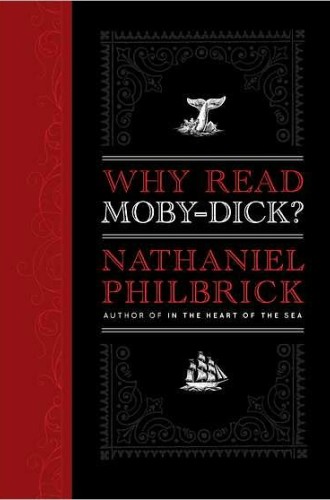Why Read Moby-Dick? by Nathaniel Philbrick
Among all the books written by Americans past and present, one is particularly special to me. I rarely teach it––and when I do, I offer it only to graduate students, and I devote a lot of time to it. The book is elusive, mysterious, passionate and proud, and I have little patience for those who just don’t get it or find it boring. So Moby-Dick quietly rests on my bookshelf, heavily annotated and rarely used.
The title of Nathaniel Philbrick’s slim new meditation on this grand experimental fable asks, Why Read Moby-Dick? It immediately foregrounds the questions at the heart of every assignment made by every English teacher: Why read this book? Or that book? For that matter, why do we assign reading in the first place? In answer, the humanist tradition of liberal arts has long maintained that reading the great works fosters the virtues that make for good human beings.
Philbrick seems to be saying that there is a spiritual quality to the act of reading. Unfortunately, however, he does not delve into the question broached by the title of this little gem of a book, but I believe he would agree that reading Moby-Dick will help us become more mature individuals, more nuanced thinkers and believers and better citizens, if only we take its many challenges head on and study the book with seriousness and devotion.





